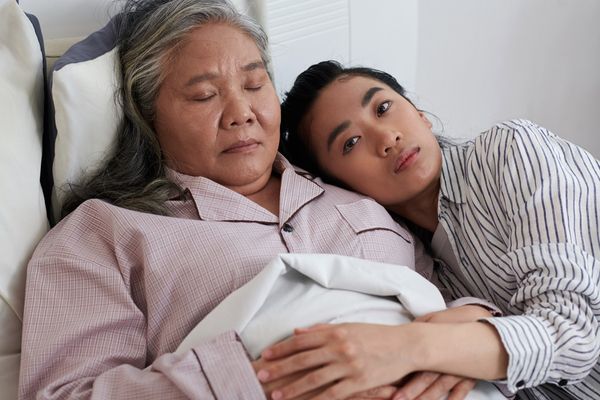
There’s no denying that caregivers do important work that benefits society as a whole. These hard-working professionals enable seniors, people with disabilities, the chronically ill, and anyone with mobility issues to live safely and comfortably in their homes.
However, caring for each other is a natural part of human interaction, and many people might inadvertently find themselves in an informal caregiving position to a family member or loved one without recognizing it as labor deserving of compensation, even if it imposes a financial burden upon them. In fact, an AARP study of family caregivers revealed that around 38 million caregivers provided 36 billion hours of unpaid care in 2021 alone, estimated at $600 billion worth of labor.
Because of the blurred lines between personal and professional caregiving, the question of whether caregivers get paid is not as straightforward as it may seem. Caregivers who are employed or contracted by established care agencies are compensated according to their employment contracts. Volunteers operating through charitable operations will not expect remuneration. But even family members who end up in an informal caregiving role to a loved one can receive payment, thanks to government programs and certain insurance schemes. In this article, we’ll look at the different options available for paid caregiving.
Professional Caregivers
Even in the most straightforward situation, compensation varies according to the caregiver’s qualifications and experience, the complexity of the care work, and the location. Salaries for caregivers in the United States range from $25,163 to $31,813 per year or around $15 per hour. Compensation rates for caregivers will also vary from state to state, corresponding with the cost of living in the area.
Although there is a misconception that professional caregivers need to be medically trained, this is not true. Home care agencies offer caregiving services that include personal care, mobility support, light housekeeping, and other non-medical support. Therefore, being a home carer can be an attractive career choice for people who wish to help others without the need for formal education in medicine or nursing.
Government Support For Non-Professional Caregivers
Many people end up caring for family members, such as elderly parents, out of familial duty and a desire to support their loved ones. While this is normally done without the expectation of reward, the burdens of caregiving in terms of time, energy, and financial resources can sometimes be difficult to manage. Fortunately, there are certain federal assistance programs in place that can provide financial support to non-professional caregivers.
Caring For Seniors
Government bodies such as the Administration on Aging (AOA) and the Division of Aging Services (DAS) provide different services to support elder care, including training, financial support, and reimbursement for supplies and equipment. However, the exact nature of the support and conditions for qualification vary between different states and counties. Contact your local AOA or DAS office to find out exactly what resources are available in your area.
Caring For Children
If you are the guardian of a disabled child who is not your biological or adopted child, you can apply to become a subsidized guardian and receive financial aid while keeping the child out of the foster care/adoption system.
Caring for U.S. Veterans
U.S. veterans receive a stipend from the Veteran-Directed Home and Community-Based Services program that offers them some discretion in which goods and services they wish to spend it on. This includes the option to hire a friend or family member as a personal care aide. The costs of a caregiver can also be covered by Aid and Attendance benefits for veterans in conjunction with a VA pension.
Medicaid And Insurance Assistance For Caregivers
The Medicaid Self-Directed Care program allows individuals who qualify to manage their own health services. In some states, this extends to hiring family members as caregivers.
You may also be able to hire a family member as a caregiver if you have long-term care insurance, but different policies have different conditions that apply. In some cases, for example, carers who live with the individual needing care for may not qualify. In these cases, it is best to contact the relevant insurance agency to confirm what allowances apply.
Get Paid As A Caregiver For Family
Even if you would not normally qualify for government assistance as a caregiver for a family member, you can still get paid as such if you are employed by a professional organization. For example, Nova Home Care is actively looking for people with a passion for helping others to work as caregivers. Because we know that no one looks after family as well as their own family, we welcome applications from individuals in the Indiana area who want to work with their own loved ones. For more information about remuneration and benefits, including salary, insurance, 401K, training, and more, see our careers page or contact us online.


